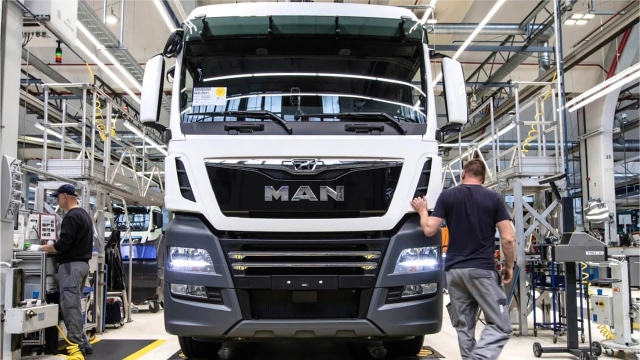
The Road Ahead: Innovations in Heavy Vehicle Manufacturing

In today’s rapidly evolving landscape of heavy vehicle manufacturing and supply, innovation plays a crucial role in shaping the road ahead for the industry. As demand for heavy vehicles continues to rise, manufacturers are challenged to enhance efficiency, sustainability, and safety in their production processes. From advancements in materials and technology to new design approaches, the drive for innovation is propelling the sector forward into a new era of manufacturing excellence.
Leading the way in semi trailer supply
The integration of cutting-edge technologies, such as automation, artificial intelligence, and data analytics, is revolutionizing the way heavy vehicles are designed, manufactured, and serviced. Manufacturers are leveraging these innovations to improve production accuracy, reduce lead times, and enhance overall product quality. Moreover, the focus on sustainability is driving the development of eco-friendly manufacturing practices, including the use of alternative energy sources and materials, to minimize the environmental impact of heavy vehicle production.
Technological Advances
In recent years, heavy vehicle manufacturing has experienced a significant transformation due to advancements in technology. One key area of innovation is the integration of automation and robotics into the production process. This has led to improved efficiency and precision in the assembly line, resulting in higher-quality heavy vehicles being produced at a faster rate.
Additionally, the adoption of data analytics and artificial intelligence has revolutionized the way in which heavy vehicle manufacturers operate. By leveraging real-time data insights, companies can optimize their manufacturing processes, predict maintenance needs, and enhance overall performance. This data-driven approach not only reduces costs but also ensures that heavy vehicles are built to meet the evolving demands of the market.
Another notable technological advancement in heavy vehicle manufacturing is the development of sustainable and eco-friendly practices. With a growing emphasis on environmental conservation, manufacturers are investing in electric and hybrid vehicle technologies. These advancements not only reduce carbon emissions but also help companies meet stringent regulatory standards. The integration of sustainable practices in heavy vehicle manufacturing reflects a commitment to a greener future for the industry.
Sustainable Practices
Heavy vehicle manufacturing is experiencing a shift towards sustainability, with companies implementing innovative practices to reduce their environmental impact. One key trend is the adoption of alternative fuels, such as electric and hydrogen power, which offer cleaner energy sources for heavy vehicles. By utilizing these alternative fuels, manufacturers are not only decreasing carbon emissions but also contributing to a greener transportation industry.
In addition to alternative fuels, heavy vehicle manufacturers are focusing on lightweight materials and aerodynamic designs to improve fuel efficiency. Investing in research and development of advanced materials, such as carbon fiber and aluminum alloys, enables companies to produce vehicles that are both durable and lightweight. Aerodynamic enhancements, including streamlined designs and add-on features like side skirts and fairings, further enhance the fuel efficiency of heavy vehicles, reducing energy consumption over long distances.
Furthermore, sustainable practices extend beyond the manufacturing process to include supply chain management. Manufacturers are collaborating with suppliers to source materials responsibly, ensuring that raw materials are ethically and sustainably produced. By promoting transparency and accountability throughout the supply chain, heavy vehicle manufacturers are making strides towards a more sustainable future, prioritizing environmental stewardship while meeting the demands of an evolving industry.
Impact on Industry
Innovations in heavy vehicle manufacturing and supply have significantly transformed the industry landscape. One of the primary impacts has been the streamlining of production processes, resulting in increased efficiency and reduced costs. Advanced technologies such as robotics and automation have revolutionized assembly lines, leading to faster turnaround times and higher output levels.
Moreover, the integration of sustainable practices in heavy vehicle manufacturing has had a positive effect on the industry’s environmental footprint. The adoption of eco-friendly materials and energy-efficient production methods has not only reduced carbon emissions but also enhanced the overall sustainability quotient of heavy vehicle operations. This shift towards greener practices is not only driven by regulatory requirements but also by a growing awareness of the importance of environmental conservation.
Furthermore, innovations in heavy vehicle manufacturing are driving greater customization options for customers. With advancements in digital design capabilities and supply chain management systems, manufacturers can now offer tailored solutions to meet specific customer demands. This trend towards customization is fostering stronger customer relationships and increasing brand loyalty within the heavy vehicle manufacturing sector.



